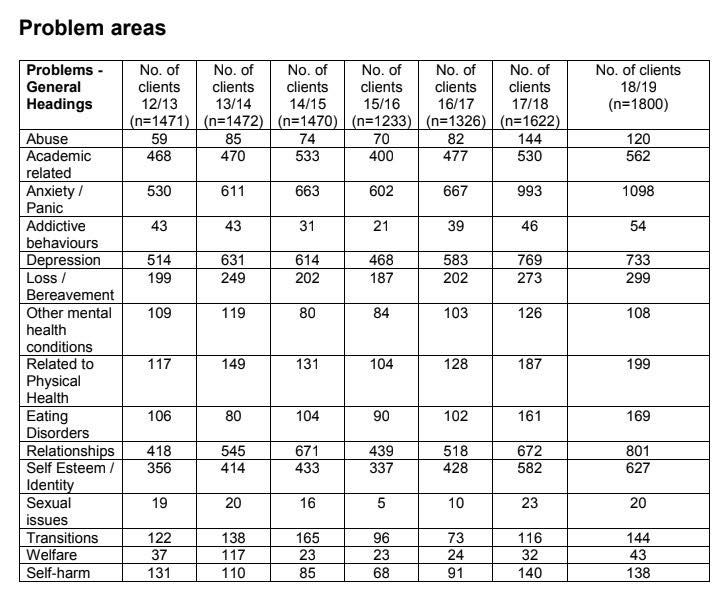
Number of Cambridge students going to counselling for anxiety has doubled in six years
The University Counselling Service has also seen a drastic increase in self-esteem issues
According to a Freedom of Information request obtained by The Tab, the number of students attending UCS counselling for anxiety and panic has risen drastically in the last few years, with 530 students in 2012-13 and 1098 in 2018-19.

The number of students attending counselling for all issues listed has risen over six years. Depression has seen a rise of around 200 students, while relationship-related issues has nearly doubled: from 418 to 801. Issues with self-esteem have also nearly doubled over the same period.
The reason for the increases is unclear. The number of students using the service in general has certainly increased , from 7.53 per cent of the Cambridge student body in 2014-15 to 8.62 per cent in 2018-19. This is perhaps due to the influence of various national campaigns over the last few years to de-stigmatise mental health issues and encourage people to seek help.
The UCS is a divisive service within the university. Some students find it helpful as a free service. Anonymous comments include "it has been (and is) useful and productive", and "it did help me a lot."
However, one student who saw the service for anxiety said that the questions asked felt "massively invasive…as a private person." Another said,"it's one of those things where I haven't had any good effects from it yet, but it's not bad enough to stop trying."

Percentage increases in students using service per issue.
Whilst people using the service for academic issues, problems with transitions and self harm has seen a comparatively much lower increase than other issues, the drastic increase in anxiety/panic issues suggests a real issue with student mental health.
One welfare officer at a Cambridge college said that this trend reflects his own work in college. Mental health appointments are "always booked up", and "most of our college nursing team's work is now in mental health, which it wasn't in the past."
Cambridge appears to be taking a more proactive role in student mental health than other UK universities. Cambridge has 20 staff on their University Counselling Service, including the country's first sexual assault and harassment advisor, as well as the welfare staff such as college nurses, chaplains and tutors.
A university spokesperson commented: “The University of Cambridge and its colleges take student mental health very seriously and we do everything possible to ensure that our students study and live in an environment in which they feel supported and safe.
"The increase in reports of anxiety at Cambridge mirror rises across the higher education sector and general population in the UK and abroad.”









































